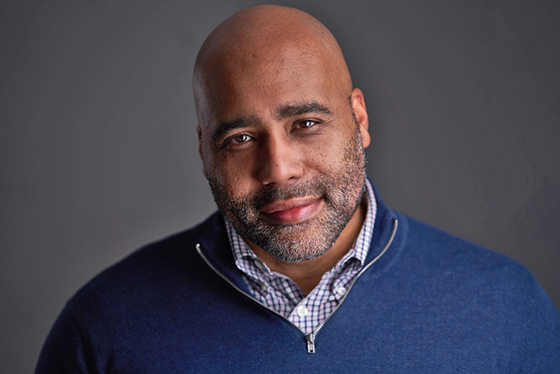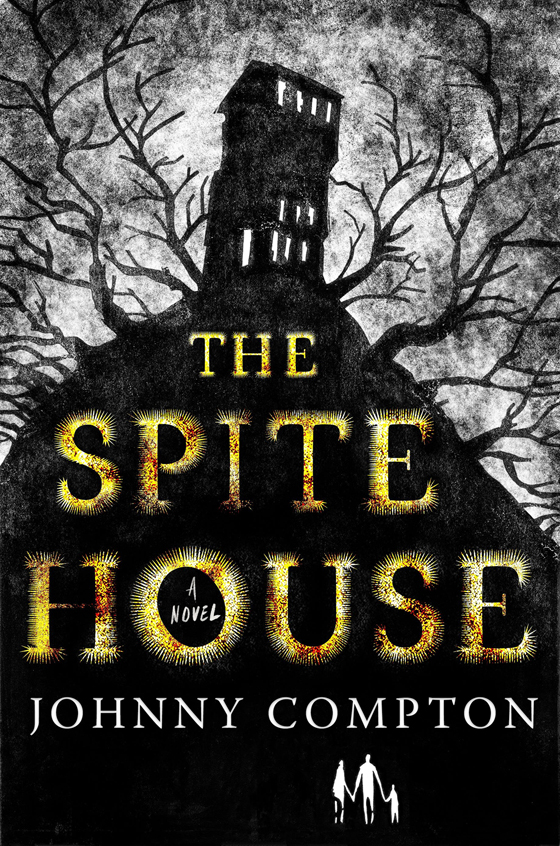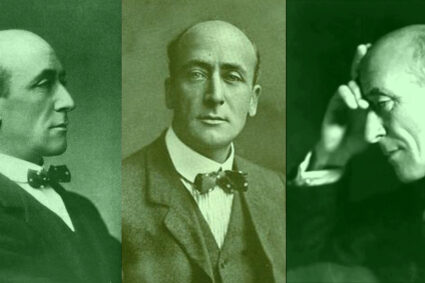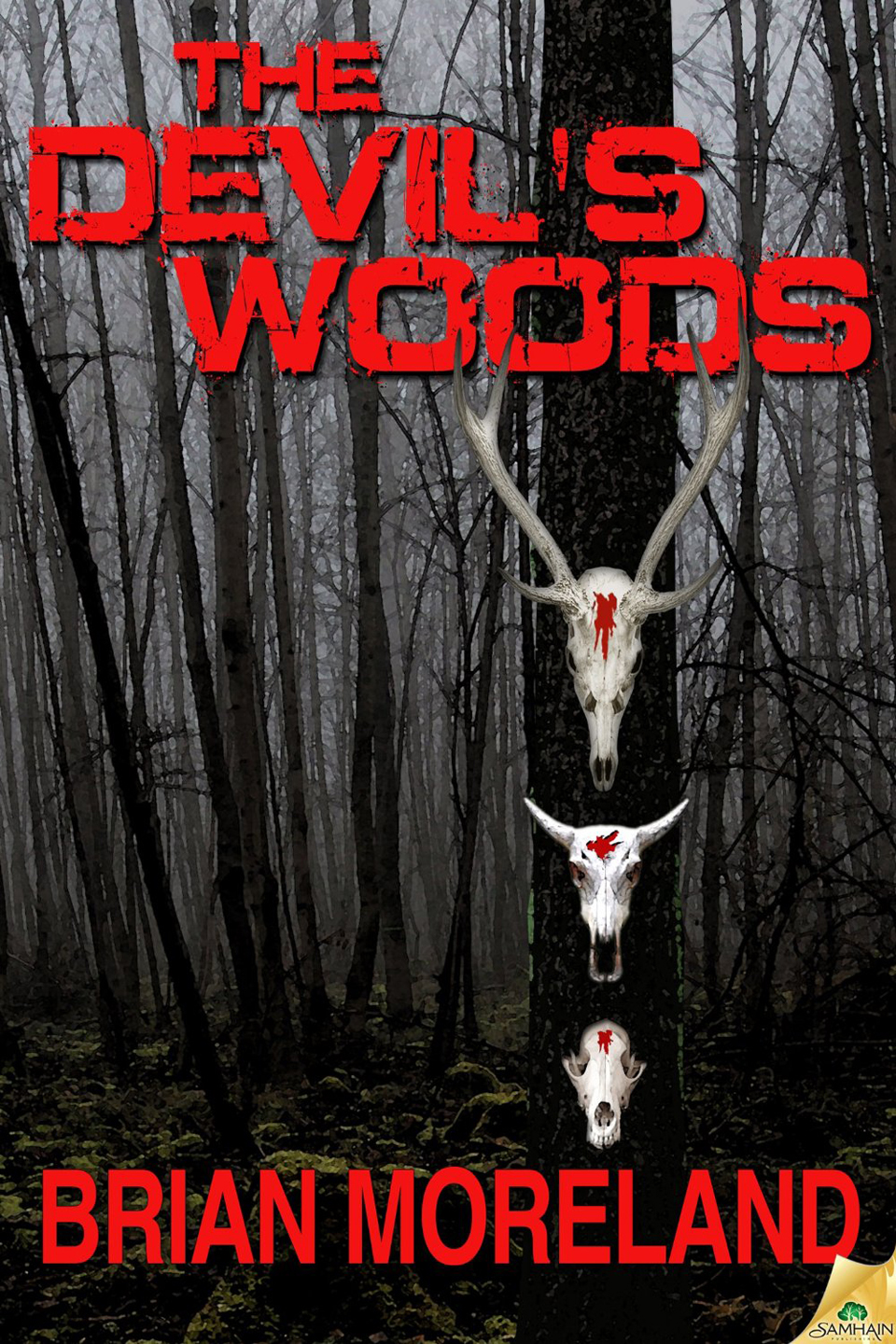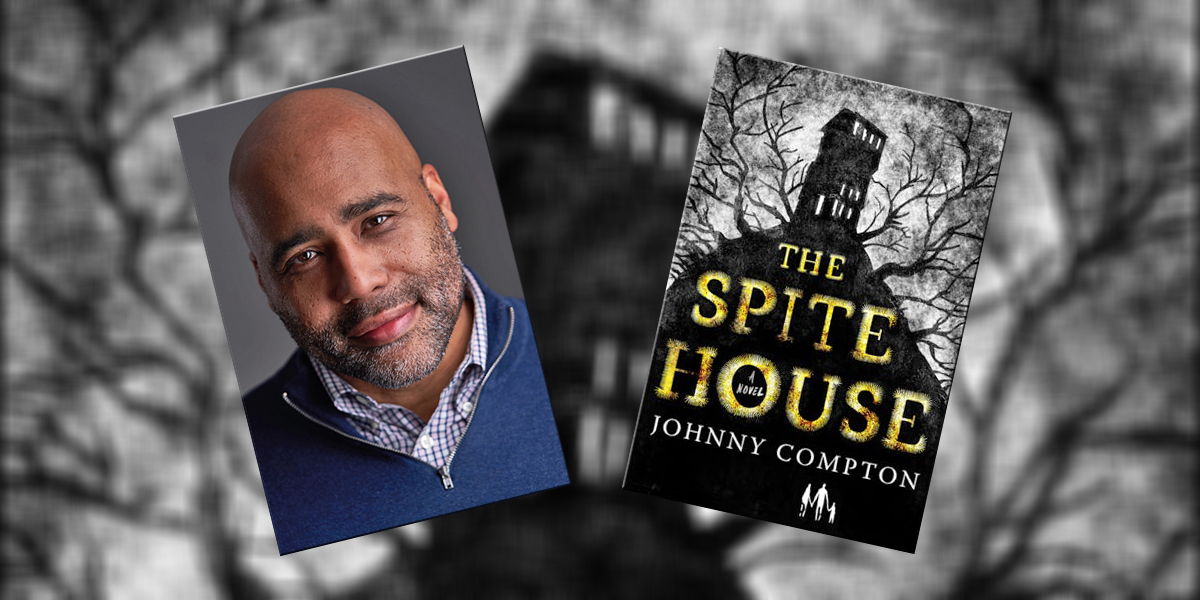
The world of horror literature is as inclusive and expansive as it’s ever been thanks to the booming success of fresh voices and vicious ideas often thrust forward via social media platforms and enthusiastic readers looking for their next night terror. It’s a beautiful landscape of brilliant storytellers that spans the globe.
I recently had the pleasure of chatting with a gentleman who has earned a ton of well-deserved praise this year following the release of his debut novel The Spite House.
Johnny Compton is a well-regarded short story creator who has seen his work shared across the entertainment landscape, including The No Sleep Podcast and a pile of collections over nearly twenty years. His debut novel, The Spite House, burst onto the scene compliments of Tor Nightfire in February of 2023.
That novel is what roped me into Compton’s world of anxiety and terror, a surreal but very relatable environment that I can’t get enough of. Think Shirley Jackson meets Peter Straub, with some Texas-sized gothic sizzle by way of Jordan Peele. He navigates the supernatural dread while balancing familial trauma and racial tension like a grizzled veteran of the craft.
The novel centers around Eric Ross as he tries to step out of the shadow of his past and forge a new path for his two daughters. Enter the titular landmark, a spite house built on a foundation of dread and trauma. Eric is a believer in the supernatural and the owner of the home is looking for proof that something isn’t right. As the secrets of the house are revealed, so too are the scars that Eric has lived with; scars that he wants to protect his children from. But those scars are still plenty raw after all these years.
When it comes to writing a novel, no two works of art are alike, and every author has their own way of putting together their puzzle. Oftentimes, that requires a writer to be flexible and adjust to the needs of each book individually. As a brilliant creator once told me, “You have to respect the terrain of the story.”
Compton holds himself accountable as a writer, but he has been doing this long enough to know that a strict routine doesn’t work for him. It’s quality over quantity.
“I try to break [writing] into chunks, preferably 500 words at a time, kind of like my old structure when I was in the 8-5 work force.” Compton has found that keeping the general workday structure keeps whatever project he’s working on crackling. He’ll get going in the morning, break for lunch, continue through the afternoon, and wrap it up in the evening. The target is 2,000 words per day, but he knows some days are better than others are.
The words ebb and flow, but that doesn’t mean the creative process slows down.
“I talk to myself out loud about stories I’m working through. A lot of authors do this, I know, and it helps me tremendously. It’s nice to know others do it, too.” He laughs at this, acknowledging that he isn’t concerned with ever ‘losing momentum’ on a project because the work doesn’t start or stop at the keyboard.
“You don’t want to ever full stop on a project, but for me, that’s not really a concern because I’m still writing, even when I’m not at my computer. I’m still talking about it to myself, working things out while I’m fixing lunch or running errands. I’m still playing the roles of different characters all day long. The momentum slows somewhat when I’m not actually typing, but nothing is ever actually stalled because things are always spinning.”
For his debut novel, Compton deftly keeps all the plates spinning. He is able to respect the haunted house terrain while also carving out his own passageways. The common tropes are whispers here, much like the specters behind the closed door, evoking the same icy thrill that Peter Straub’s Ghost Story gave me two decades ago. There are nods to Shirley Jackson. There is a dread that I had not felt since reading Jeffrey Konvitz’s The Sentinel.
Compton acknowledges that Ghost Story is one of his favorite books from any genre and admits there was one firm rule going into The Spite House.
“I wanted to bypass the part that is present in a lot of haunted house fiction, which is where the haunting incrementally passes through the family; first the kids see it, then the mom, et cetera. I wanted to get beyond that, and I thought, especially with the back-story with the characters, it all adds up. They’re already familiar with the paranormal so it was perfect.
“It’s important not to buck the trend for the sake of bucking a trend.” Compton continues. “So it needs to work for the book and story. But when you are so familiar with the genre, you see it so often and you want to get past those worn-out parts. I understand it’s a little paint-by-numbers in parts, you have to play the hits so to speak, but I thought it’d be really interesting to get away from that. I wanted my characters to be willing to accept it and embrace the concept of a haunting right away. That’s why the first day they’re in the house, and the door creaks a bit, the characters get it and want to process what they just experienced.”
We shared a few memories from our lives that just may have been laced with the supernatural.
“It’s really important to not lose sight of the fact that some people react more naturally to the supernatural than others. I feel many stories seem to fall into a tendency to portray characters as they think people might react, skeptics and believers alike. We hear a weird noise and there’s rarely a really strong effort to try to explain what the noise is. Instead, most people are just like ‘it must have been something, eh well,’” Compton laughs.
“People don’t really want to think about it. As someone who may be semi-agnostic to ghosts or whatnot, I’ve heard some interesting sounds from time to time at my home. I’ve heard people moving back and forth upstairs and I’m still kind of like ‘eh, well what are you going to do?’”
Related Content:
Algernon Blackwood: Nature’s Dark Muse
Interview with Author Tim Lebbon
Interview with Dacre Stoker: Royal Horror Bloodlines
Interview with Plague Town Author Dana Fredsti
When it comes to inspiration for the project, Compton was able to lean on a personal experience that would raise the hackles of even the most hardened horror aficionado.
“My partner’s sons are grown, but I heard one of them sneaking into the house late one night and I was thinking a girl was with them. We’ve all been that age, and I wasn’t looking to cause a commotion, so I went upstairs to politely tell them just to be decent. I wanted to be the cool-I-get-it kind of guy. So, I get up there and I start my spiel and … nobody’s there. I heard it. I know what the house sounds like, I know what the boys upstairs sound like. That’s how clear the noises were. But there was nothing there. I didn’t find anything odd about it, though. I just kind of accepted that something I couldn’t explain happened. Besides, most of us secretly know that once you start actually trying to figure things out, that’s when a horror story begins.” Compton laughs at this last part. If that doesn’t perfectly encapsulate the mind of a horror writer, nothing does. The self-awareness of both the supernatural and the mundane is what pushes Compton’s work to the top of the TBR pile.
“I’ve always been fascinated by Poltergeist. That movie is so great for so many reasons. The supernatural versus the mundane is not something explored enough, I don’t think, in literature.”
The Spite House was a labor of love, in every sense of the word. The first two-thirds of the novel took about eighteen months while the last leg took roughly three months. Compton admitted that natural self-doubt set in at one point.
“After I had a mental breakthrough with the book, I found myself at a point where the idea of ‘don’t self-reject’ is a mantra. It has to be. I lean into it and embrace it. I was at the Tucson Book Festival and was lucky enough to have met Weston Oakes. He did a panel where he was asked about self-doubt and kind of getting over those mental hurdles and he said something along the lines of ‘the only person who thinks that you don’t know what you’re doing is you. You’re the only person telling you that you aren’t doing a good job, or that it isn’t a good idea.’ For me, I always keep that in mind now. A lot of the self-doubt I had was me overthinking what the world was going to do with my work, how they were going to be evaluating my work, and so on. It was more about ‘what is the rest of the world going to do about this?’ and it really started to get to me.
“But in reality, you can’t get to that point before you actually put [the book] out. You have to put blinders on, so to speak, and pretend you’re the only person who exists. I’ve had stories rejected and picked up elsewhere, and that’s not to knock whoever said no, there’s just so many avenues and paths to success. Don’t preemptively presume the world at large is going to reject your work. All it takes is one person to tell you you’ve got something here. At the end of the day, it’s all about whether I can go back and be happy with what I put out there. That’s my thing, it was taken out of me. That kind of plays both in terms of blocking out the negativity and uplifting me during the tough times.”
At the end of the day, we all need some support and encouragement from time to time. Compton offers sage advice to debut authors. “Try to find something under-explored. Something that will help you stand out as far as the story goes. Find something near you—go look at websites that discuss the strange events, places or sightings in your state. Go back and find something unique to your life that not many people know about. There is so much out there to share and learn about. Stand out and make it your own.”
Compton attributes some of the success of The Spite House to the fact that the house itself doesn’t follow your cookie-cutter blueprint for a scary story. “Part of why I was able to break through is I wrote about something a lot of people hadn’t heard of. They see the title, they Google the term, and, suddenly, they may be interested in reading my book. I did my research. I realized this was a pretty untapped setting in horror and I went with it.”
Of course, the mechanics of the art form are just as important as the inspiration.
“Read less writing advice, I’ll tell you that. Read the book, not the list of writing advice. If you like a book, find out who that author likes to read. You’ll always learn more from the book itself than from a list of writing advice. I mean, adjectives are great. They’re helpful. There’s a regurgitated old creative writing piece of advice that you should avoid them. Don’t abuse them, but they help, for sure. That comes with practice. Like in sports, you learn when it’s time to progress. In basketball, you learn to dribble with your dominant hand before you start doing crossovers. Use the tools you know, the resources you’re familiar with. Get stronger and then keep moving forward. You got to get your reps in.”
Compton enjoyed a successful tour circuit for The Spite House, including a visit to the San Antonio Book Festival and San Diego Comic Con. Then there’s an enthralling interview on the Talking Scared Podcast, which put Mr. Compton on my radar.
I am eagerly awaiting Johnny’s next novel. While he’s staying mum on the subject currently, he will confirm he’s actively working on it. I don’t think it’s going to be an idea Compton and I enthusiastically talked about during our phone call, although it would make for one hell of a book. I mean, who doesn’t want to learn about what happens to the town after the events of Poltergeist wraps up?
“There are corpses everywhere. I want to dwell in the neighborhood. How did the neighborhood react? What lore grew from that night when the house just crumples up like a tin can and disappears? I want interviews with the neighbors, documentary-style. City officials, how are you going to handle this? Who is moving out? Who is suing their HOA to break their contracts? How do you reconcile this supernatural phenomenon with the mortgage crisis of going upside down on your home if you decide to move?
“Then the paranoia sets in—am I going to start hearing noises? You got to talk to the person who is confident it was aliens, of course. Because it’s always, at least sometimes, aliens. That’s almost a defensible reaction to a house straight-up just imploding into thin air! Then you’ve got the weirdo tourists coming to visit and take selfies. Religious people, the ghost hunters—they’re all going to be there.”
That’s a book any horror loving bibliophile would enjoy.
If you haven’t crept through the halls of The Spite House, do yourself a favor and pick up a copy wherever you buy your favorite books. Until his next release, keep your eyes on johnnycompton.com as well as X (formerly Twitter) and Facebook for all things Johnny Compton. He’s a fan favorite on several podcasts, and for good reason, so don’t hesitate to search for him wherever you get your podcasts (I highly recommend his visit to Talking Scared Podcast).
Simply put, being true to yourself and your work is what really matters. Compton is well on his way to carving out a hell of a career doing just that.


